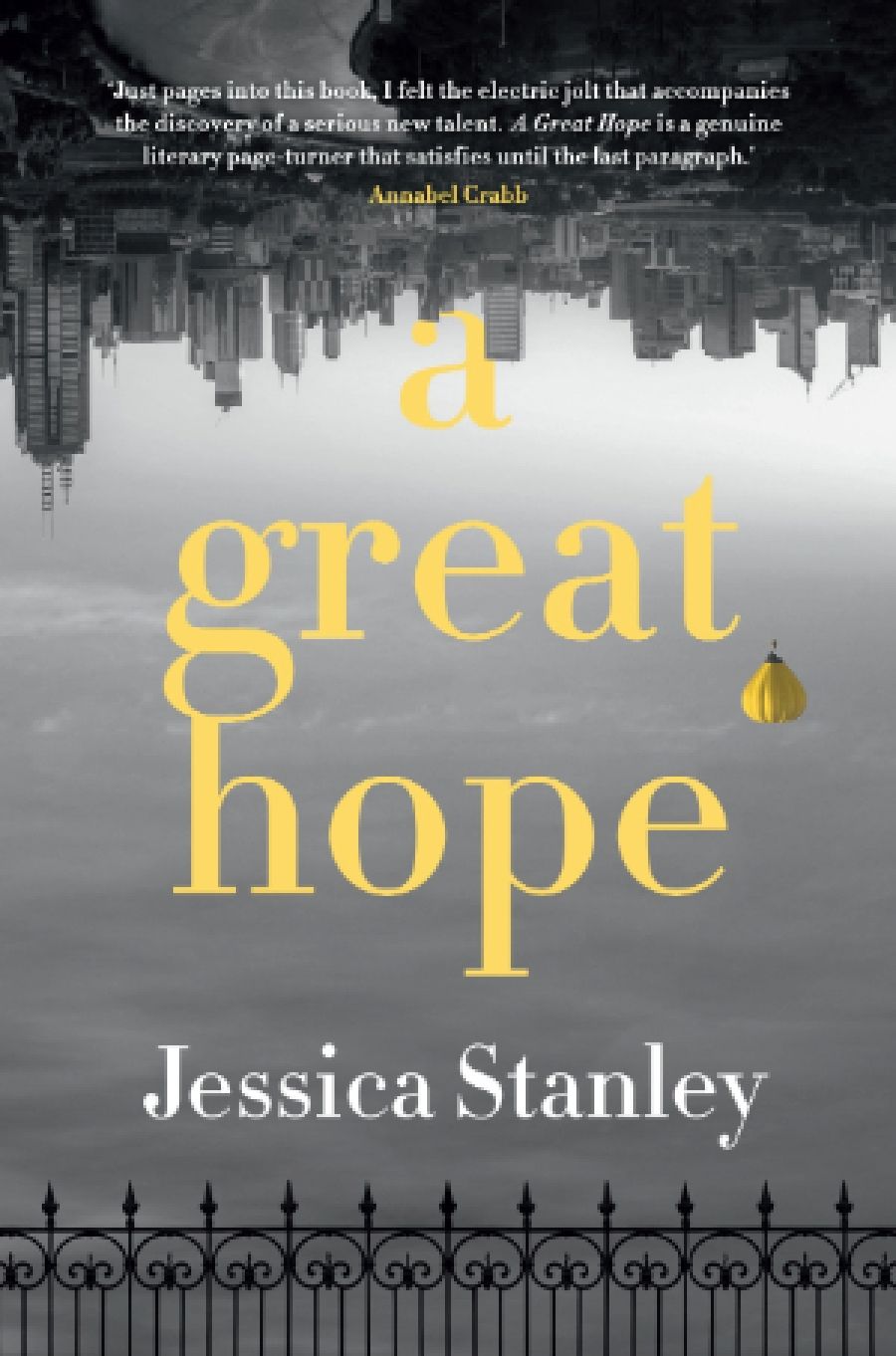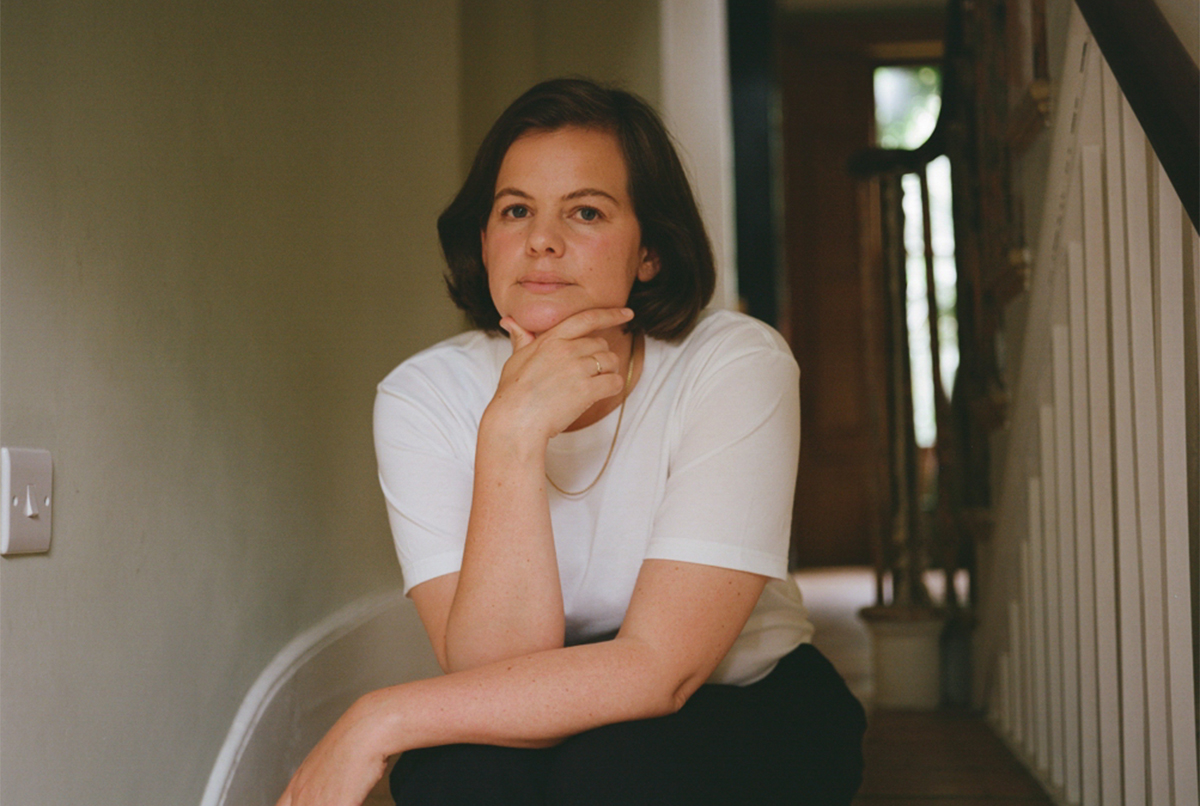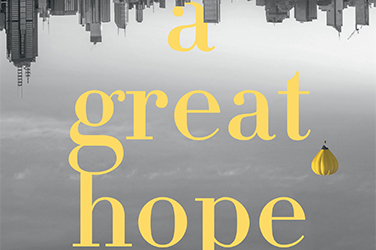
- Free Article: No
- Contents Category: Fiction
- Review Article: Yes
- Article Title: Party people
- Article Subtitle: Fictionalising Labor’s years of hope
- Online Only: No
- Custom Highlight Text:
There are decades where nothing happens, and there are weeks where decades happen,’ Vladimir Lenin has been credited with saying, with reference to the Bolshevik Revolution. It’s a sentiment that immediately springs to mind when reading Jessica Stanley’s A Great Hope, a début that, while not billed as historical fiction, is deeply concerned with history and its making.
- Article Hero Image (920px wide):

- Article Hero Image Caption: Jessica Stanley (photograph via Pan Macmillan Australia)
- Featured Image (400px * 250px):

- Alt Tag (Featured Image): Laura Elizabeth Woollett reviews 'A Great Hope' by Jessica Stanley
- Book 1 Title: A Great Hope
- Book 1 Biblio: Picador, $32.99 pb, 406 pp
- Book 1 Readings Link: booktopia.kh4ffx.net/kjbaQN
Stanley’s titular ‘great hope’ is former Prime Minister Kevin Rudd, during his rise to office in 2007. John Clare is one of the men who helped get him there, a union leader and dyed-in-the-wool Labor voter with his own political ambitions. John’s mysterious death in 2010, when he was found impaled on the fence of his house after an apparent fall from the rooftop, provides a centrepiece for the novel’s action. It is a thrilling set-up, allowing Stanley to dip in and out of time, tracking the vicissitudes of the Rudd–Gillard governments (2007–13) – from landslide victory, to legislative impotence over the environment, to the 2010 leadership spill – under the guise of a whodunit.
Stanley’s project is ambitious, as she embraces a wide range of genres, including murder mystery and family saga, while eluding their constraints. With a career background that includes journalism, politics, and publicity for the television show Neighbours, Stanley confidently inhabits the professional spheres of her cast, evoking with ease the sterile muck of newsrooms, two-star conference hotels, and Melbourne–Canberra flights. Yet A Great Hope is above all a character-driven narrative, and the women surrounding the charismatically mediocre John Clare leave a lasting impression.
‘God knows he’s disappointed enough women,’ Stanley has John reflect at the novel’s inception, right before falling to his death. These disappointed women include Grace, his hostile wife of more than twenty years; their firstborn, Sophie, loose cannon and scandal-magnet; and Tessa Notaras, a serious and self-sufficient younger woman with whom John becomes involved while she is a member of his staff. There is also the eternally sidelined son, Toby, Grace’s favourite child and unwitting ear to John’s marital regrets (‘[I]f you’re in a relationship and it’s not quite right, don’t just grit your teeth and stick it out. You matter too’).
If Stanley deals at times in stereotypes – the frigid first wife, the bratty daddy’s girl, the underling-turned-mistress – she also deals in their subversion. Nobody in A Great Hope is exactly who they seem to be at first glance. The inner monologues and vocal mannerisms of the Clare women in particular are distinct, and Stanley delights in their contradictions and imperfections. Grace is both a sensitive individual who is concerned about climate change and the kind of woman who enjoys the power trip of pointing out another’s use of plastic bags instead of canvas. Sophie is a sympathetic and captivating central character, despite coming out with lines like, ‘I literally don’t give a fuck about Timor.’
For the most part, Stanley juggles the large cast of A Great Hope effectively. Even secondary characters, such as Sophie’s cloying and ambitious boyfriend, Sam, are memorable. Nonetheless, one does get the impression that Stanley revels in the inner-workings of certain characters over others, sometimes to the detriment of the novel’s structure. A neighbour, Girl, is introduced early on as Grace’s confidante and acolyte, only to largely disappear from the action until she becomes pertinent in the book’s final third. Toby, while lovingly rendered, fades into the background by comparison with the magnetic Clare women and Tessa. Although this wallflowerishness is certainly true to character and emblematic of the plight of a mild-mannered child in a family of large personalities, it does mean that his arc can feel low-stakes, despite the inclusion of an on-campus sexual harassment plot. One wonders if Stanley might have achieved a tighter narrative by engaging with a more limited set of perspectives.
The non-linearity of A Great Hope is both a strength and an occasional source of frustration. By and large, Stanley uses leaps in time to great effect, drawing tension from the staggered disclosure of information, the interplay of past and present; in short, the novel is never boring. Stanley’s confidence as a storyteller and trust in her readers are evident in her avoidance of obvious time markers and era-specific window-dressing. In a less graceful author’s hands, a reference to the first season of MasterChef would be just that: a reference. Stanley uses it to initiate a major character’s media career.
That said, there are points where readers may find it difficult to orient themselves in time, especially if they aren’t overly familiar with (or interested in) the events of the Rudd–Gillard years. This is particularly true of Sophie’s storyline as it becomes more convoluted.
Like Curtis Sittenfeld and Jane Smiley before her, Stanley shows how personal losses and gains can have political (and by that token, ethical) ramifications. Nobody is more committed to the Labor Party than the starry-eyed lover of the union leader, nor more reactionary than that same woman, spurned. Arguably, the political narrative falls somewhat to the wayside toward the end of the book, with Stanley’s evident desire to grant her characters a ‘happy ever after’ – and have them come out as good guys in the eyes of history, for all their missteps – leading to a dulling of the social commentary that animates the earlier sections. Perhaps this is Stanley’s point: that, for many, the personal subsumes the political; that her characters are, ultimately, people capable of a ‘happy ever after’ – even if that fabled future implicitly takes place in the Australia of Tony Abbott and his ilk.


Comments powered by CComment